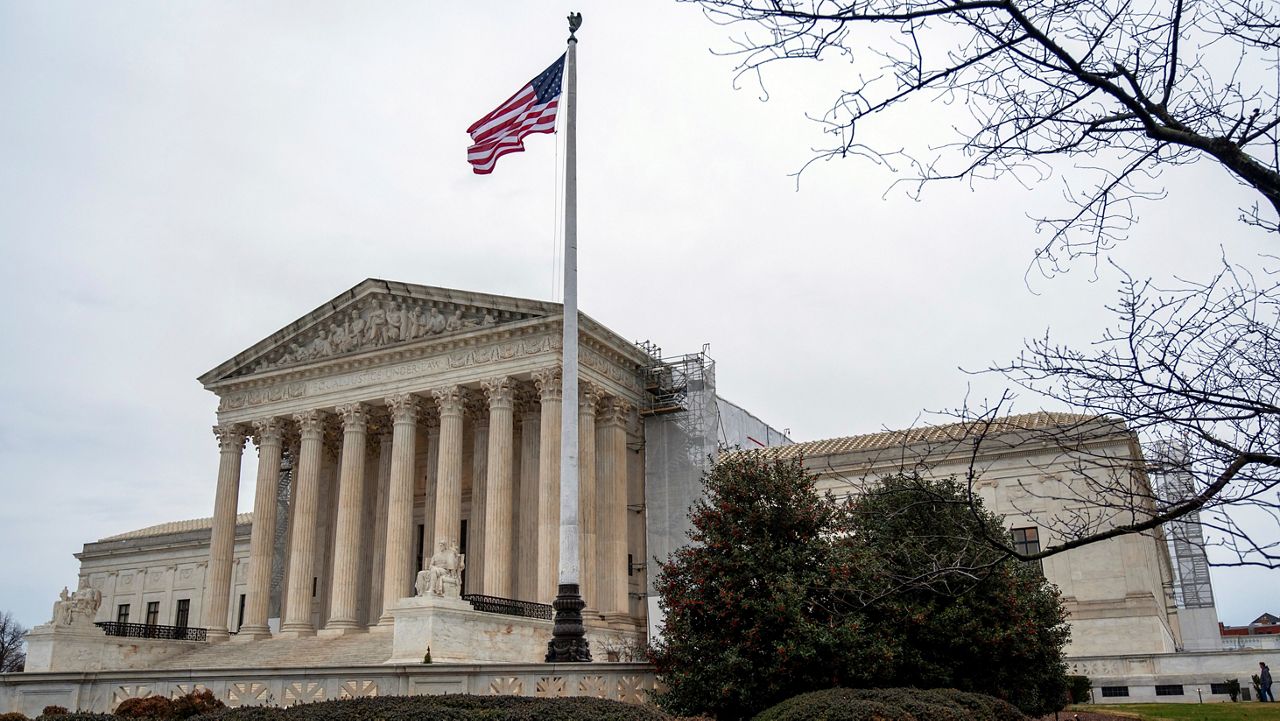The Supreme Court on Thursday rejected a conservative-led attack that could have undermined the Consumer Financial Protection Bureau.
The CFPB was created after the 2008 financial crisis to regulate mortgages, car loans and other consumer finance. The justices ruled 7-2 that the way the Obama-era agency is funded does not violate the Constitution, reversing a lower court decision. The case was brought by payday lenders who object to a CFPB rule.
President Joe Biden hailed the decision as "an unmistakable win for American consumers."
"Since President Obama and I created it in the wake of the Great Recession, the Consumer Financial Protection Bureau (CFPB) has worked to protect consumers from abusive practices by lenders, servicers, and special interests, and has lowered costs for hardworking families by going after junk fees," Biden said in a statement. "Under my Administration, the CFPB has delivered: providing nearly $9 billion in consumer relief and working to save consumers $20 billion per year going forward on credit card late fees, overdraft fees, and other junk fees."
"In the face of years of attacks from extreme Republicans and special interests, the Court made clear that the CFPB’s funding authority is constitutional and that its strong record of consumer protection will not be undone," he added.
Writing for the majority opinion, conservative Justice Clarnece Thomas said that while most federal agencies must be funded through the annual congressional appropriations process, "the Consumer Financial Protection Bureau is different" because it "does not have to petition for funds each year."
"Instead, Congress authorized the Bureau to draw from the Federal Reserve System the amount its Director deems 'reasonably necessary to carry out' the Bureau’s duties, subject only to an inflation-adjusted cap," he continued. "In this case, we must decide the narrow question whether this funding mechanism complies with the Appropriations Clause. We hold that it does."
Thomas went on to say that through the Dodd-Frank Wall Street Reform and Consumer Protection Act, the law enacted in the wake of the 2008 crisis which created the agency, Congress gave the CFPB "sweeping authority" as well as insulation "from the influence of the political branches" and the president's control, noting the fact that its director can only be removed "for inefficiency, neglect, or malfeasance."
In a concurring opinion, liberal Justice Elena Kagan noted that "throughout our history, Congress has created a variety of mechanisms to pay for government operations."
"Some schemes specified amounts to go to designated items; others left greater discretion to the Executive. Some were limited in duration; others were permanent. Some relied on general Treasury moneys; others designated alternative sources of funds," Justice Kagan wrote. "Whether or not the CFPB’s mechanism has an exact replica, its essentials are nothing new. And it was devised more than two centuries into an unbroken congressional practice, beginning at the beginning, of innovation and adaptation in appropriating funds. The way our Government has actually worked, over our entire experience, thus provides another reason to uphold Congress’s decision about how to fund the CFPB."
Justices Samuel Alito and Neil Gorsuch, both conservatives, dissented, with the former writing that the court's ruling "turns the Appropriations Clause into a minor vestige."
"The Court holds that the Appropriations Clause is satisfied by any law that authorizes the Executive to take any amount of money from any source for any period of time for any lawful purpose," Alito wrote. "That holding has the virtue of clarity, but such clarity comes at too high a price. There are times when it is our duty to say simply that a law that blatantly attempts to circumvent the Constitution goes too far. This is such a case. Today’s decision is not faithful to the original understanding of the Appropriations Clause and the centuries of history that gave birth to the appropriations requirement."
The CFPB case is among several major challenges to federal regulatory agencies on the docket this term for a court that has for more than a decade been open to limits on their operations. The CFPB, the brainchild of Sen. Elizabeth Warren, D-Mass., has long been opposed by Republicans and their financial backers.
"This is a big win for working people," Warren wrote on social media on Thursday.
Unlike most federal agencies, the consumer bureau does not rely on the annual budget process in Congress. Instead, it is funded directly by the Federal Reserve, with a current annual limit of around $600 million.
The federal appeals court in New Orleans, in a novel ruling, held that the funding violated the Constitution's appropriations clause because it improperly shields the CFPB from congressional supervision.
While the U.S. Chamber of Commerce and some other business interests backed the payday lenders, mortgage bankers and other sectors regulated by the CFPB cautioned the court to avoid a broad ruling that could unsettle the markets.
In 2020, the court decided another CFPB case, ruling that Congress had improperly insulated the head of the bureau from removal. The justices said the director could be replaced by the president at will, but allowed the agency to continue to operate.



